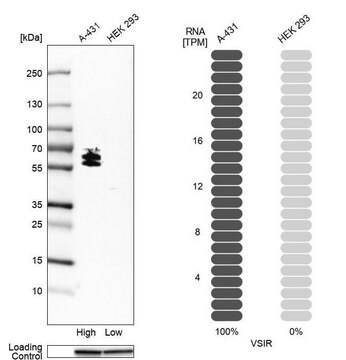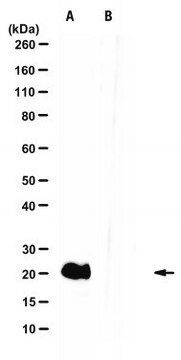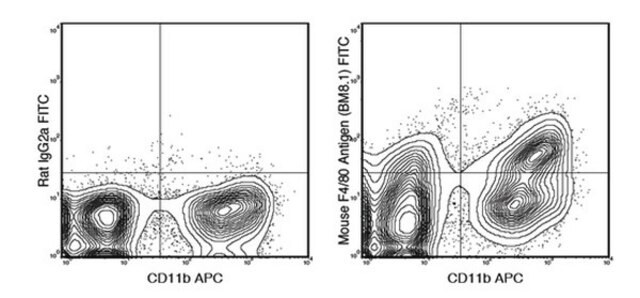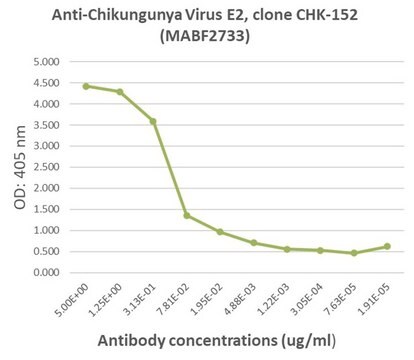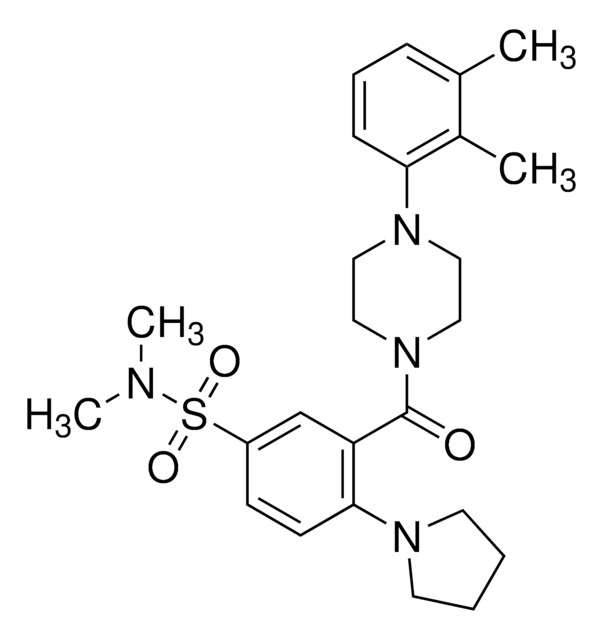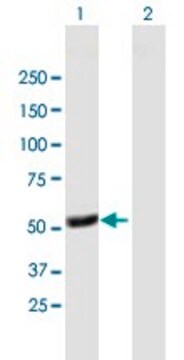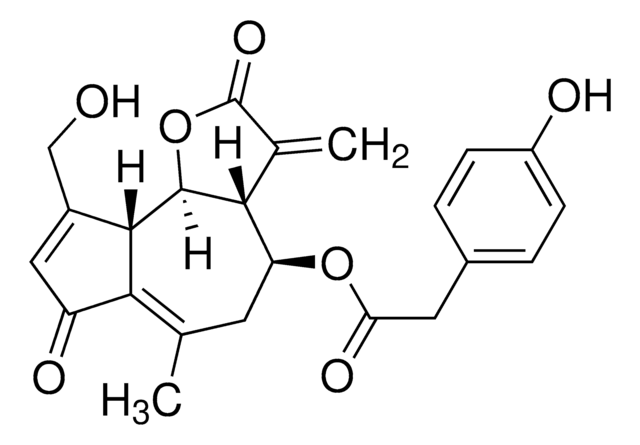MABF3030
Anti-IL-11 Antibody, clone 12-2E-6G
Sinonimo/i:
Interleukin-11
About This Item
Prodotti consigliati
Origine biologica
rat
Livello qualitativo
Forma dell’anticorpo
purified antibody
Tipo di anticorpo
primary antibodies
Clone
12-2E-6G, monoclonal
PM
calculated mol wt 21.52 kDa
observed mol wt ~20 kDa
Purificato mediante
using protein G
Reattività contro le specie
mouse
Confezionamento
antibody small pack of 100 μL
tecniche
immunohistochemistry: suitable
western blot: suitable
Isotipo
IgG2aκ
Sequenza dell’epitopo
Unknown
N° accesso ID proteina
N° accesso UniProt
Temperatura di conservazione
2-8°C
modifica post-traduzionali bersaglio
unmodified
Informazioni sul gene
mouse ... IL11(16156)
Descrizione generale
Specificità
Immunogeno
Applicazioni
Evaluated by Western Blotting in HEK293T cells transiently transfected with murine IL-11.
Western Blotting Analysis (WB): A 1:250 dilution of this antibody detected IL-11 in HEK293T cells transiently transfected with murine IL-11, but not in wild-type HEK293T cells.
Tested Applications
Western Blotting Analysis: A representative lot detected IL-11 in Western Blotting application (Deguchi, Y., et al. (2018). Biochem Biophys Res Commun. 505(2):453-459; Nishina, T., et al. (2021). Nat Commun. 12(1):2281).
Immunohistochemistry Applications: A representative lot detected IL-11 in Immunohistochemistry application (Deguchi, Y., et al. (2018). Biochem Biophys Res Commun. 505(2):453-459; Nishina, T., et al. (2021). Nat Commun. 12(1):2281).
Note: Actual optimal working dilutions must be determined by end user as specimens, and experimental conditions may vary with the end user.
Stato fisico
Ricostituzione
Stoccaggio e stabilità
Altre note
Esclusione di responsabilità
Non trovi il prodotto giusto?
Prova il nostro Motore di ricerca dei prodotti.
Codice della classe di stoccaggio
12 - Non Combustible Liquids
Classe di pericolosità dell'acqua (WGK)
WGK 1
Punto d’infiammabilità (°F)
Not applicable
Punto d’infiammabilità (°C)
Not applicable
Certificati d'analisi (COA)
Cerca il Certificati d'analisi (COA) digitando il numero di lotto/batch corrispondente. I numeri di lotto o di batch sono stampati sull'etichetta dei prodotti dopo la parola ‘Lotto’ o ‘Batch’.
Possiedi già questo prodotto?
I documenti relativi ai prodotti acquistati recentemente sono disponibili nell’Archivio dei documenti.
Il team dei nostri ricercatori vanta grande esperienza in tutte le aree della ricerca quali Life Science, scienza dei materiali, sintesi chimica, cromatografia, discipline analitiche, ecc..
Contatta l'Assistenza Tecnica.
